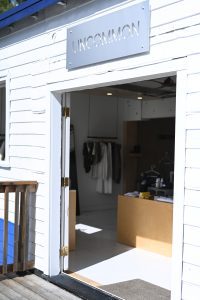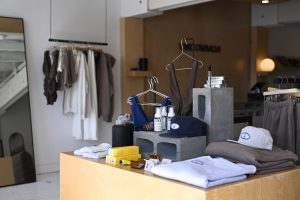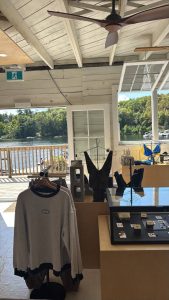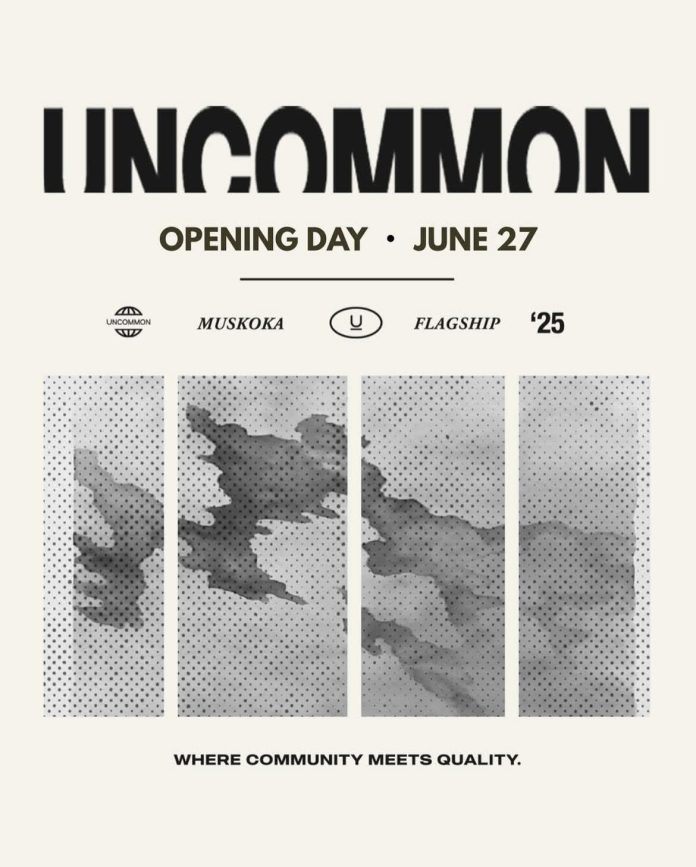Spring doesn’t come all at once in Muskoka. It arrives in fits — a patch of sun here, the smell of thawing pine there, the cold spray of a power washer against the family boat.
Victoria Gregorio felt it in her bones, soaked and shivering in the driveway as she helped her father get the boat ready for another season on Six Mile Lake. She stepped inside to warm up, peeling off damp clothes, when she saw it — her father’s old Tommy Hilfiger sweater draped over the corner of his bed.
She pulled it on, heavy and warm, the fleece thick with years. Instantly, she was ten years old again, back on the lake, sitting beside her father. She could smell the woodsmoke curling off the campfire, hear the slap of water against the dock, taste the air steeped in pine and gasoline.
She looked down at the sleeve and ran her fingers over a small burn mark near the cuff. A spark from the fire, one summer night long ago. The memory flared: laughter in the dark, the glow of embers, the smell of a burning marshmallow gone too deep into the flames. The sweater carried all of it — every scuff, every fray: a record of summers past. A soft armour against forgetting.
Her father walked in, chuckling when he saw her. “Why are you wearing that old thing?”
Gregorio shrugged. “Because they don’t make anything like this anymore.”
She said it without thinking, but it hung in the air, undeniable. Clothes like this — heavy, built to last, made to be lived in — didn’t seem to exist anymore. Not in a world of stitches made to split and fibres made to fade. This sweater had endured. It had been through something. And somewhere along the way, it had gathered a soul.
Instead, most store racks were filled with fast fashion — made quick, sold quick, discarded quicker still. No story, no character, no longevity. Just profit.
Her father smiled, like he’d been waiting for her to figure it out. “Then make it yourself,” he said.
He had been one of eleven children, raised in a Macedonian household where nothing was wasted and no one waited for help that wasn’t coming. He built his own business that way — with his hands, his grit, and a belief that if something didn’t exist, you built it yourself.
He raised his daughter with that same ethic and a simple creed, now tattooed down her spine: “What you don’t change, you choose.” She wasn’t going to choose disposable clothes or the status quo. She wanted to make something with meaning, made to last — the kind of thing you’d fight to keep.
So she did.
She started working on Uncommon in 2020, spending more than a year developing custom fabric and building relationships with Canadian suppliers. The brand wasn’t built overnight — it was sewn together slowly, from scratch.

She sold her first 100 hoodies at Stackt Market in Toronto — made by hand, with no advertising, no social media, and no brand recognition. They sold out. Then she stepped back — took time to refine the business, the brand, the mission.
Uncommon officially launched to the public on October 15, 2024, on her father’s birthday. It was a full-circle moment — not just for the brand, but for the philosophy behind it.
Uncommon isn’t about chasing trends. It’s about slowing down, buying less, choosing better. It’s about clothes that become part of your life — vessels for memory. “We’ve been taught to buy fast and forget fast,” Gregorio said. “But I wanted to build a brand that asks something different of people. What if you bought one thing you really loved — and never let it go?”
She designed her first hoodie to feel like the sweater that started it all: heavy, soft, structured. “I wanted something that, after five years, would still feel like the one you reach for first,” she said. “Most sweaters don’t even survive the first wash.”
Even the swimwear came from a desire to do things differently — to make pieces that felt tailored, secure, and built to last. “You want your bathing suit to feel comfortable and supportive — something you’re actually excited to put on,” she said.

Gregorio sees Uncommon not just as a business, but a long-term mission: to break the status quo and rebuild consumer values from the ground up. Her philosophy is rooted in her father’s lessons: buy less, buy well, invest in what you love. “He always said, think about cost-per-wear. If it lasts and you love it, it’s worth it.”
When manufacturers told her no, she found a way around it — launching her own production company, Common Ground, to make Uncommon’s pieces the way she wanted. That network now helps other Canadian brands produce high-quality clothing close to home.
Uncommon grew quickly, fuelled by word of mouth and a loyal online following. Customers connected with more than just the fit — they were buying into a philosophy. Clothes made with care, designed to last, from a brand that cared where and how they were made.
“I wanted people to feel good about the clothes and where they came from,” Gregorio said. “Not just the fit, but the story.”
That story included a commitment to keeping production in Canada, supporting local jobs, and insisting on ethical manufacturing. It wasn’t the cheapest way — but it was the right one.

This summer, Gregorio brought Uncommon home. The brand’s first storefront opened in June, above Duke’s in Port Carling, with its windows open to the lake and light spilling across the floor. Inside, it’s raw and restrained — the stainless steel counters rest on stacked cinder blocks, with folded hoodies, swimwear and accessories placed neatly on soft wood tables. There’s a fridge with cold drinks, a breeze off the bay, and just enough room between the racks to let the clothes breathe. Gregorio is there most days, chatting with locals, explaining the brand, swapping stories.
“People ask me what makes us different,” she said. “It’s the idea that you’re not just buying a thing — you’re buying something you’ll live in, that’ll hold memories.”
Her father’s old sweater reminded her what that feels like. And in a way, she’s never really taken it off.
*This article is sponsored by Uncommon, a Canadian clothing brand inspired by the stories we wear.
Want to feature your business on Muskoka411?
Email taylor@muskoka411.com for more information.








